Strategic Alignment
- Home
- Strategic Alignment
STRATEGIC ALIGNMENT
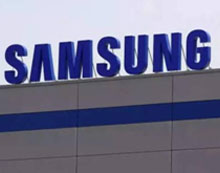
_____________________________
STRATEGIC ALIGNMENT BASED OPERATIONAL EXCELLENCE
_____________________________
STRATEGIC ALIGNMENT IN MANUFACTURING INDUSTRY AND OTHER
Manufacturing Industry
→
Steel Industry
→
_____________________________
OPERATIONAL EXCELLENCE OF
MANUFACTURING INDUSTRY
Strategic Alignment in Manufacturing Industry

Manufacturing companies improves their performance increasing their production volumes, improving their quality, raising their On-Time-In- Full delivery reliability, or removing bottlenecks from their production lines. Improving performance, and achieving a step-change in profitability, safety, customer and employee satisfaction, calls for taking an end-to-end value chain perspective. It calls for a single agenda, driven at speed, and boosted by true people engagement, skilled leadership, and changed behaviors. This creates a permanent shop-floor transformation, supported by digital technology which will help businesses to accelerate, faster.
Leadership

In manufacturing industry we deep dive into operational processes and management systems, an assessment of IT and operations technologies, or an assessment of the human dynamics such as leadership and behaviors. The resulting analysis then serves as input for a program of improvement design, covering processes, human factors, and digital technology, to be implemented while supported by strong program management.
Strategic Alignment
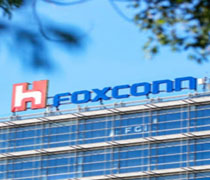
A business’s Operations Strategy should be aligned to the business’s overall business strategy. To define your operations strategy, you should start by answering these key questions:
Are we fully exploiting Operations to deliver on the business strategy, and maximize value creation?
→
What are the key levers that impact on our targets?
→
Do we need to design or redesign any operations?
→
Do we need to close a gap in operational performance?
→
How do we integrate sustainability drivers in a profitable way?
→

How do we get the most value out of innovation and digitalization?
→
Do we need to consolidate capabilities, or do we need new ones?
→
The main aim of the manufacturing industry is to determine the critical factors of strategic alignment between operational excellence methodologies and Industry 4.0 technologies for manufacturing industries and make comparative analyses between automotive, food and textile industries in terms of strategic alignment between operational excellence methodologies and Industry 4.0 technologies.
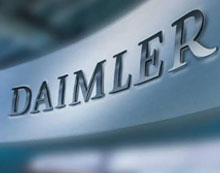
The manufacturing sector is highly competitive and operationally complex. Therefore, the strategic alignment between operational excellence methodologies and Industry 4.0 technologies is one of the issues that need to be addressed.
→
TOYOTA | SAMSUNG |
APPLE | FOXCONN |
VOLKSWAGEN | DAIMLER |
_____________________________
OPERATIONAL EXCELLENCE OF IRON
AND STEEL MANUFACTURING INDUSTRY
Resilience, Transition, and Transformation of Global Steel Industries
Transition and Transformation plan helps companies navigate changes such as resignation from leadership roles, structural changes within an organisation, mergers with other companies, or transitions between stages of business planning. It has a set of activities, deliverables, and outcomes that the transition aims to achieve. It should align with the strategic objectives and vision of the organisation, and reflect the needs and expectations of the stakeholders.
Steel production heavily relies on raw materials like iron ore and coal. Fluctuating prices of these inputs can impact production costs and profitability for steel manufacturers. Supply chain disruptions, geopolitical tensions, and changing demand patterns can contribute to price volatility. The steel industry is under increasing pressure to reduce its environmental footprint and adopt sustainable practices. Stricter regulations related to emissions, waste management, and energy efficiency can require significant investments for compliance, which may pose challenges for smaller steel producers.
Steel industries has faced long-standing challenges that stem from the inherent rigidity of its processes and the often harsh operating environments.
→
Despite these complexities, the imperative for innovation within this sector remains essential.
→
The historical significance and widespread influence of the steel industry cannot be overstated.
→
Its products form the backbone of countless sectors, ranging from construction and infrastructure to automotive and manufacturing.
→
Harsh environment and asset failure

The steel industry heavily relies on high-temperature thermal or chemical transformations to achieve the desired final outcome. However, this kind of operational environment inherently poses significant risks, making it exceptionally challenging to prevent unexpected accidents and ensure worker safety.
The inspection and maintenance of machinery and structures within the industry present ongoing difficulties.
By investing in modernization and digital transformation, the steel industry can empower its workforce with tools and technologies that alleviate safety concerns and reduce the stress associated with demanding operational conditions.
→
Arcelormittal is a leading steel and mining company, has embarked on a journey to digitally transform its European operations. In Arcelormittal, taking out costs from IT and business process operations, it reinvests those savings to digitise specific business functions, such as supply chain and finance. Through the first wave of engagement, Infosys worked with ArcelorMittal, sharing best practices around next-generation application management services to optimise, stabilise and transform the steel maker’s IT landscape. Infosys consolidated, harmonised and standardised processes and improved service governance.
Digital transformation of the supply chain required building a team that understood ArcelorMittal’s specific processes. Given the high complexity of both the industry and the company’s business demand, delivering high quality and faster time-to-market were both of paramount importance. Now, Infosys is also delivering agile product development and focusing on accelerated product delivery while addressing product quality through a testing centre of excellence that carries out testing-as-a-service. These initiatives have contributed to a digitally transformed supply chain, encompassing the entire spectrum of order management, production scheduling and logistics, now fortified by agile development processes, accelerated feature delivery, increased automation and improvements to ArcelorMittal’s technology architecture. For example, improved sales and order management processes use intelligent automation to extract information from contracts digitally for use in the downstream order management system.
Infosys has also implemented a concept called Live Enterprise, a collection of tools, frameworks and methodologies designed to accelerate the digital innovation journey. The initial focus was to achieve common ways of working across teams, which provides visibility into gaps in business processes. Plugging those gaps means better service to business users.
Process monitoring
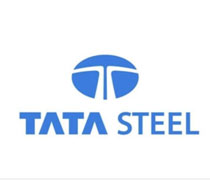
Given the critical nature of the steel making environment, halting production for corrective actions is often impractical. Unfortunately, the current monitoring approach falls short of predicting failures with the same level of accuracy as intelligent predictive models. This significant disparity highlights an inherent gap that leaves room for potential errors and inefficiencies.
To address these challenges, it is crucial to transition towards a more advanced and proactive approach to inspection and monitoring within steel mills. By embracing intelligent predictive models, the industry can significantly enhance its ability to identify and anticipate potential failures before they occur.
→
Tata Steel leads the road to digital transformation as a Global Lighthouse.
On the best practices in effective deployment of advanced manufacturing at scale, some key elements of the state-of-the-art technology ecosystem has been incorporated by Tata Steel. They are:
A multi-tenant cloud ecosystem for rapid scalability, technology recency and risk mitigation.
→
Pre-emptive cyber threat mitigation through dedicated Network and Security Operations control.
→
Smart sensors being deployed across critical equipment to enable predictive asset management.
→
AI-based video analytics for real time Defect Detection on Cold Rolled Coils, Stack Emission Detection, etc.
→
Machine Learning models deployed across processes from mining to rolling for improved Yield, Energy, Throughput.
→
Robotic Process Automation, NLP (Natural Language Processing) based chatbots deployed across business processes to enhance user experience and business agility.
→
Blockchain enabled Material Test Certificate generation to prevent sales of counterfeit tubes.
→
Zero/Low code platforms adopted for rapid application development.
→
Partnering with the Tech start-up ecosystem to build bolt-on solutions for various business applications.
→
Maintenance
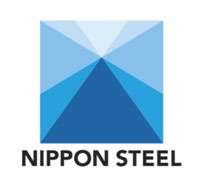
Corrosion, a pervasive problem in steel industries, significantly complicates the maintenance of equipment and structures due to the unforgiving operating conditions.
The absence of precise management tools severely limits the ability to predict failures within operations, resulting in unplanned shutdowns and an overreliance on corrective maintenance methods. This approach not only disrupts production but also incurs unnecessary costs and prevents optimal resource allocation.
To address these challenges, it is crucial to adopt comprehensive solutions that enable effective inspection, streamlined maintenance, and robust data management within the steel industry.
→
Nippon Steel is strongly promoting digital transformation (DX).With the aim of becoming a digitally advanced company in the steel industry, we will work to innovate production and business processes by making full use of data and digital technology, and promote measures that will help speed up decision-making and fundamentally strengthen our problem-solving capabilities.
Promotion of Nippon Steel’s DX
In promoting DX at Nippon Steel, it is important to utilize digital technology and enhance the ability to continuously implement innovation, or “the power to change,” without being affected by traditional constraints.
This is because it is possible to create significant value by efficiently standardizing and automating current business operations and production processes using digital technology, and then using the knowledge and resources generated to create a cycle of new innovation.
In addition, rather than simply applying new digital technologies, NS aims to review the business operations and production processes based on data, and thereby enhance decisions that tend to be partial optimizations to optimal decisions from a broader perspective, transcending organizational barriers and hierarchies.
Nippon Steel DX,” realizes strength in connecting and in maneuvering its vision.
It will promote Nippon Steel DX to innovate all steel business processes. In order to achieve the goals outlined in the mid- to long-term management plan, it will realize “smarter manufacturing,” “strengthening of flexible and optimal supply systems,” and “building of business intelligence” through the integration of the technologies and expertise (competitiveness in the real world) with digital technologies. At the same time, by setting challenging targets through the development of a DX roadmap, we will also enhance the ability to create solutions and innovations to achieve them.
Innovative evolution of strength in manufacturing based on smarter manufacturing
→
Develop smarter manufacturing (Cyber Physical Production) through the advanced use of AI, IoT and other digital technologies
→
Improvement of labor productivity through the use of automation and predictive detection, etc., and production stabilization and quality improvement through the advancement of production technology
→
Ensuring the same level of operations and quality at overseas sites as in Japan
→
Strengthen customer responsiveness by enhancing flexible and optimal supply system
→
Establishment of an integrated production planning platform from order to production to delivery (shortening of lead time, flexible response to changes)
→
Linkage with supply chain information, etc., and efforts to contribute to customers and create new value
→
Global management support through enhancement of business intelligence
→
Building an integrated data platform that enables real-time understanding of management information and KPIs for optimal action
→
Strengthen business intelligence as a global management platform (Business Intelligence: data-driven management support)
→
Accelerate decision-making and improve problem-solving capabilities from the management level to the front line
→
Innovation of all steel business processes
Nippon Steel DX, which Nippon Steel is promoting, covers the entire series of steel business processes, including production planning, marketing, manufacturing and maintenance, quality control, engineering, research, procurement, and finance.
Production planning DX
Linkage with each DX measure based on integration and acceleration of performance management and integrated production planning
Marketing DX
Strengthening of supply chain linkage, acceleration and sophistication of marketing policy decisions
Manufacturing and maintenance DX
Remote management, prediction monitoring and automation of operation and equipment maintenance through use of IoT and AI
Quality control DX
Design of optimal quality conditions based on big data and advancement of quality control
Engineering DX
Design advancement and remote trial running using MR (VR + AR) and wireless technology
Research DX
Promotion of R&D utilizing digital technologies
Procurement DX
Optimal operation relating to raw material supply and demand and production plan changes
Finance DX
Enhancement of response to management environment changes through reinforcement of data infrastructure
Solid waste management and pollutants

A significant amount of waste is generated, and regrettably, a portion of this waste is improperly released into the environment. Moreover, the primary source of energy for these industrial processes predominantly relies on the combustion of fossil fuels. This reliance directly contributes to the emission of polluting gases into the atmosphere. Both the improper waste disposal and the high carbon emissions associated with fossil fuel combustion pose severe environmental problems, effectively categorising the steel industry as one of the most environmentally polluting sectors.
POSCO-Thainox annual production has increased, and so has its acid consumption, waste water generation and other environmental liabilities. Given these challenges, POSCO-Thainox was seeking technology that could reduce H2SO4 and HNO3-HF pickling acid consumption, the environmental impact of NOX emissions, waste water generation, and waste sludge, as well as improve production availability of the annealing and pickling lines. Improved surface quality of the finished product was also an important consideration.
The Scanacon solution
Scanacon has been instrumental in achieving POSCO-Thainox goals, supplying various pieces of acid management equipment. Initially, Scanacon supplied a SA70 Acid Manager as well as acid recovery, filtration and circulation solutions for the Cold Rolled Annealing & Pickling Line (CAPL). When the Hot Rolled Annealing & Pickling Line (HAPL) was installed, the same acid management technologies from Scanacon were included from the design stage.
The result
More than 35 percent HF and 40 percent HNO3 are saved annually, and NOx emissions are kept under the control limit without any “Denox” unit required. A waste-sludge landfill reduction of 50 percent has been achieved. Importantly, with Scanacon, finishing process control, line uptime, productivity and quality is continuously ensured.
Scope of work
Scanacon supplied a complete acid management solution to POSCO-Thainox, including: Engineering, SA70 Acid Manager, SA100 Automatic Acid Analyzer, CycloSAFU, SAR ModuFlex, Commissioning, and Training.
To address these environmental challenges and promote sustainable practices within the global steel industry, embracing transformation is significant.
→
ARCELORMITTAL | NIPPON STEEL |
TATA STEEL | POSCO |
JSW | SAIL |
_____________________________
Our consulting on strategic alignment is managed by a dedicated team from South Korea.

South Korea relies upon exports to fuel the growth of its economy, with finished products such as electronics, textiles, ships, automobiles, and steel being some of its most important exports.
South Korea’s largest industries are electronics, automobiles, telecommunications, shipbuilding, chemicals, and steel.
In these above industries, Japan has also developed significantly but so far strategic alignment is concerned, South Korea is in an unparalleled position.
If you think of consulting services in electronics, automobiles, telecommunications, shipbuilding, chemicals, textiles and steel, our MCGR team from South Korea is right for you. |

_____________________________